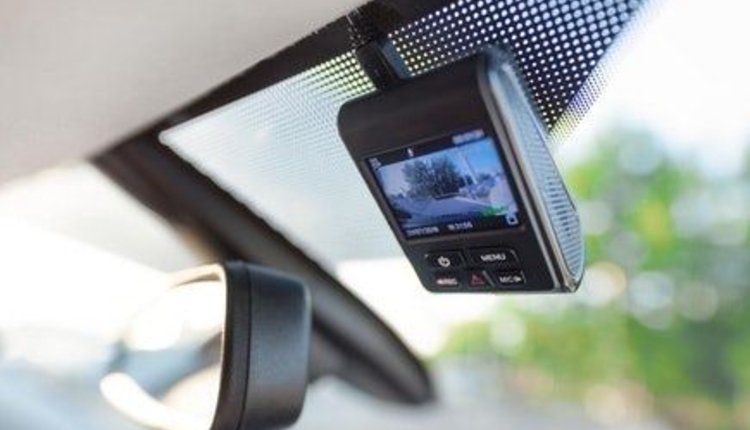Dash cams, small video cameras typically mounted on a vehicle’s dashboard or windshield, have become increasingly popular for personal safety, accident documentation, and even capturing scenic road trips. However, their use raises privacy and legal concerns. Oregon has specific regulations governing the use of dash cams. This article provides a comprehensive guide to help Oregon drivers understand these regulations and ensure they use dash cams responsibly.
Legality of Dash Cams in Oregon
- Dash cams are generally legal in Oregon. There are no laws explicitly prohibiting their use.
- Oregon law restricts windshield obstructions. ORS 815.260 states that a person may not drive a vehicle with any material “so placed as to prevent or impair the ability to see into or out of the vehicle.” This means dash cams cannot be mounted on the windshield in a way that significantly blocks the driver’s view.
Audio Recording Considerations
- Oregon is a two-party consent state. This means recording conversations within your vehicle requires the consent of all parties involved.
- Violations can lead to legal consequences. It’s best to disable audio recording of conversations unless you have the explicit consent of everyone in the vehicle.
- Transparency is key. If your dash cam has audio capabilities, informing passengers that they may be recorded is always a good practice.
Dash Cams and Law Enforcement
- Dash cam footage can be valuable evidence. Recordings may help document traffic accidents, reckless driving, or other incidents for insurance purposes or police reports.
- Footage is not always admissible in court. Judges have discretion in deciding whether to allow dash cam footage and other evidence. It’s best to consult an attorney if you intend to use dash cam footage in a legal proceeding.
Best Practices for Dash Cam Use in Oregon
- Mounting: The best location to mount a dash cam in Oregon is on the dashboard to avoid obstructing your view. Some dash cams are designed specifically for dashboard placement.
- Data Management: Regularly review and delete old footage to free up storage space and manage sensitive information. Securely store important recordings.
- Privacy Considerations:
- Limit recordings of bystanders and license plates when possible.
- Be mindful when sharing dash cam footage online, especially if it includes identifiable information.
Dash Cam Regulations in Specific Oregon Cities
While Oregon has statewide regulations regarding dash cams, some cities may have additional ordinances or interpretations of the law. Here’s a brief overview for some of Oregon’s major cities:
- Portland: Portland generally follows Oregon’s statewide dash cam regulations.
- Eugene: No specific additional dash cam regulations are known in Eugene.
- Salem: Salem follows the state regulations.
- Bend: Bend adheres to Oregon’s dash cam laws.
It’s best to check with a city’s municipal website or local police department for any further clarifications.
Frequently Asked Questions (FAQs)
- Can I mount my dash cam behind the rearview mirror? While technically permissible as it may cause less obstruction, check the manufacturer’s instructions for the recommended mounting location.
- What happens if I record a conversation without consent? You could face legal penalties under Oregon’s wiretapping laws.
- Can I use my dash cam footage to report a crime? Yes. Dash cam footage can be helpful to law enforcement when investigating crimes.
- Can my employer install a dash cam in my work vehicle? Yes, employers in Oregon can generally install dash cams in company vehicles. However, they may have obligations to notify employees of the surveillance and may have restrictions on how the footage can be used.
- Are dash cams with night vision legal in Oregon? Yes, dash cams with night vision are legal. Many models have this feature to enhance visibility in low-light conditions.
Additional Considerations
- Impact on Insurance: Dash cam footage can sometimes help clarify fault in accidents, and some insurance companies offer discounts for drivers who use dash cams. Be sure to check with your insurance provider about their specific policies.
- Commercial Vehicles: Oregon may have additional regulations regarding dash cams for commercial vehicles, such as trucks and taxis. Consult with the Oregon Department of Transportation (ODOT) or a legal professional for details if you operate commercial vehicles.
- Road Trip Recordings: If you plan to use your dash cam while traveling across state lines, familiarize yourself with regulations in those states, as they may differ from Oregon’s laws.
Sources
- Oregon Revised Statutes (ORS) 815.260: https://oregon.public.law/statutes/ors_815.260
- Oregon.gov
- BlackboxMyCar – Dash Cam Laws By State: https://www.blackboxmycar.com/pages/are-dash-cams-legal-in-my-area-dash-cam-laws-in-every-us-state
- Mindel Scott – Oregon Dash Cam Laws: http://www.mindelscott.com/2022/11/25/oregon-dash-cam-laws/
Disclaimer
This article provides general information on dash cam regulations in Oregon. It is not intended as legal advice. Always consult with an attorney for specific legal guidance regarding your individual situation. Laws and regulations are subject to change, so it’s important to stay up-to-date on any new developments in dash cam law throughout Oregon.



